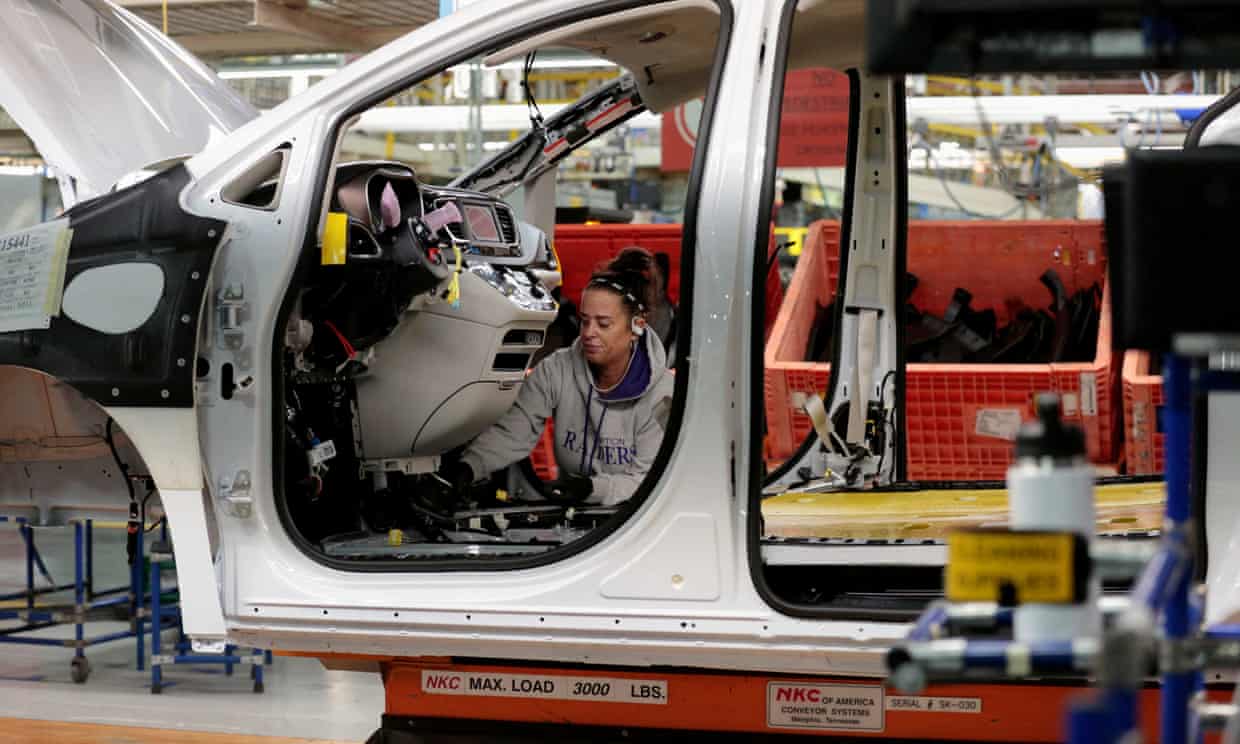Automakers are pushing back, arguing goal is unrealistic given higher cost of EVs and patchwork nature of charging infrastructure
Canada will require all new automobiles to be zero-emission by 2035 as the country looks to curb its fossil fuel output.
Environment minister Steven Guilbeault outlined the federal government’s plan on Tuesday requiring auto manufacturers to increase the share of fully electric or plug-in hybrids sold in the coming years.
“We are at a tipping point,” he said, adding that demand for EV vehicles in Canada has previously outstripped the available supply.
The Electric Vehicle Availability Standard will require that one-fifth of the vehicles sold in 2026 be either fully electric or plug-in hybrids. That figure will increase to three-fifths by 2030, and then by 2035 all vehicles offered for sale in Canada will need to be zero-emission. Emergency vehicles will be exempt.
Automakers that fail to sell enough vehicles under the legislation will be able to buy credits, worth C$20,000 (£11,800) each, from other manufacturers who exceed their targets or have invested in charging station infrastructure. Companies will only be able to offset a maximum of 10% of their total compliance.
The automobile industry has pushed back against the regulations, arguing that Ottawa’s goals are unrealistic given the higher cost of electric vehicles and the patchwork nature of charging infrastructure across the country. To ease concerns, plug-in hybrids that can drive at least 80km on an all-electric charge before switching to fossil fuels will be eligible for sale as a zero-emission vehicle.
The guidelines, first announced in 2021 and updated on Tuesday, mark an attempt by the federal government, under pressure from environmental groups, to catch up to European nations and the US, which have varying sales or emissions requirements meant to spur electric vehicle sales. The current European Union plan aims to bring automotive emissions down by 55% from 2021 levels by the end of the decade and to zero by 2035.
Based on recent sales figures, Canada already has a long way to go to meet its targets.
Slightly more than one in 10 new vehicles sold in the first nine months of this year were electric, according to recent data from Statistics Canada – about half of what would be required under the new mandate in 2026.
But in regions that already have regulations similar to what the federal government has proposed, those figures are far higher. In 2020, both Quebec and British Columbia legislated sales targets for zero-emission vehicles and quickly exceeded those targets, years earlier than required.
In Quebec, 20% of new cars are electric, and in British Columbia, that figure jumps to 25%, according to Statistics Canada.
Both provinces, which have additional financial incentives for buyers, met their targets ahead of time. Ontario, the largest car market in the country, scrapped its provincial incentives when premier Doug Ford was elected in 2018.
In recent months, Canada also announced signifiant subsidies for battery-production facilities. According to the the parliamentary budget officer, incentives for Northvolt, Stellantis and Volkswagen battery plants will cost C$43.6bn ($32.7) by 2033.
Source: Canada to require all new cars to be zero-emission by 2035 | Canada | The Guardian
